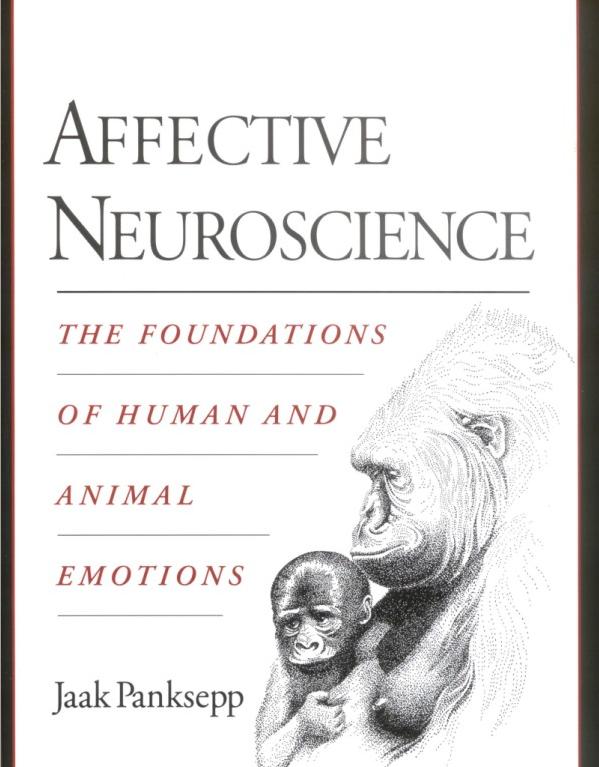
This is a cool two-part talk from the putative founder of affective neuroscience, Jaak Panksepp. His work has been essentially absorbed into the field of interpersonal neurobiology, and his recent book, The Archaeology of Mind: The Neuroevolutionary Origins of Human Emotion (2012), was released as part of that series at WW Norton (this is a revised and updated [less sciency] version of Panksepp's seminal 1998 text, Affective Neuroscience: The Foundations of Human and Animal Emotions).

Affective Continuity? From SEEKING to PLAY -- Science, Therapeutics and Beyond
Published on Nov 16, 2012
The reward SEEKING system of the brain is a general purpose emotional process that all mammals use to acquire all the resources needed for survival from daily meals to social bonds—a " go-and-find-and-get what you need and want" system for all rewards. It provides a solid foundation of eager organismic coherence for all the other primary-process emotional functions including positive ones such as LUST, CARE, and PLAY as well as negative ones such as RAGE, FEAR, and PANIC/GRIEF.
This summary will focus on the hierarchical arrangement of the affective BrainMind which provides solid affective foundations for learning and higher mental processes which then can help regulate emotions via developmental progressions where bottom-up maturational processes grounded on affective feelings give way at maturity to various top-down regulations of behavior and feelings. This kind of two-way circular-causality provide important considerations for not only envisioning the maturation of the MindBrain but potentially new Affective Balance Therapies that deploy our increasing appreciation of the importance of social joy and emotional-homeostasis in mental health and disorder. In this vision the positive forces of SEEKING especially in the form of CARE and PLAY can be used to counteract depressive despair that arises from fragile and broken social-bonds key sources of affective insecurity. Direct manipulations of the SEEKING and the closely associated PLAY system may alleviate depressive despair. Clearer images of the evolved infrastructure of the affective mind provide i) controversial new avenues for therapeutic mental-health interventions ii) more naturalistic visions of child rearing practices and iii) new visions of the cognitive facets of human minds and cultures. Some of these issues are further elaborated in The Archaeology of Mind: The Neuroevolutionary Origins of Human Emotion (2012).
Part One
Part Two
No comments:
Post a Comment